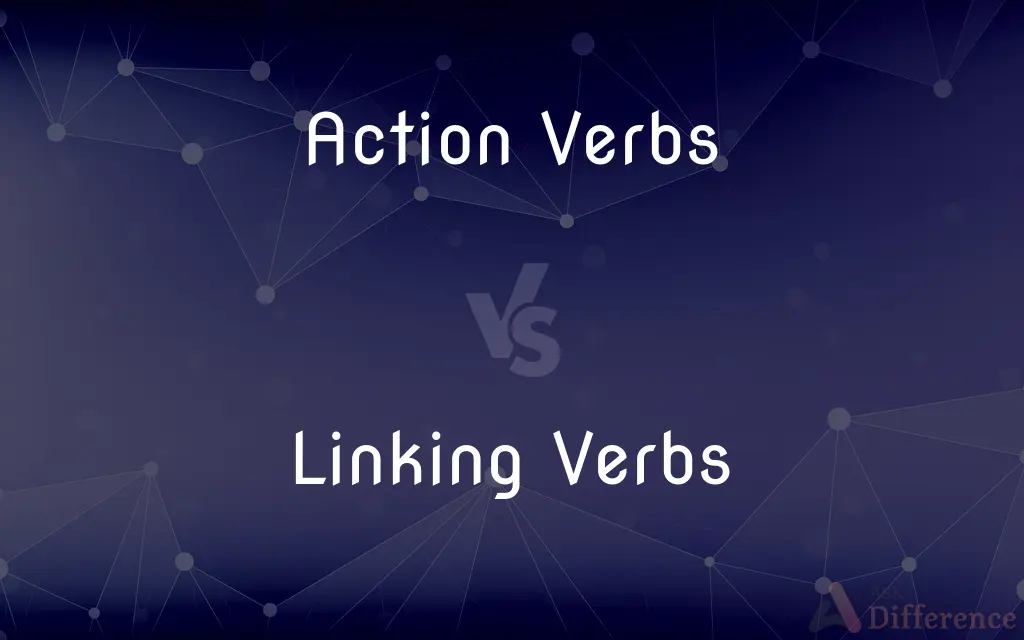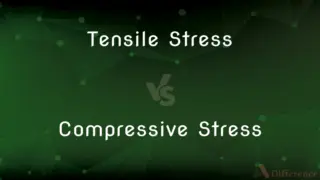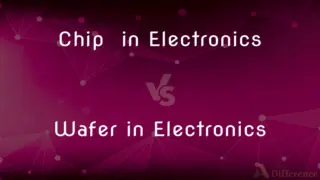Action Verbs vs. Linking Verbs — What's the Difference?
By Tayyaba Rehman — Published on December 1, 2023
Action Verbs denote an action; Linking Verbs connect the subject to a state or condition.

Difference Between Action Verbs and Linking Verbs
Table of Contents
ADVERTISEMENT
Key Differences
Action Verbs depict activities or movements. They show what the subject of a sentence does. Linking Verbs, on the other hand, do not express action. Instead, they link the subject to information about the subject.
Action Verbs can be physical (like "run") or mental (like "think"). Linking Verbs connect the subject to a description, such as an adjective or more information about the subject.
Action Verbs often require direct objects to complete their meaning, while Linking Verbs connect the subject to a subject complement or a predicate nominative.
Action Verbs can be identified by checking if they can be changed into different tenses. Linking Verbs, meanwhile, often resemble forms of "be" (is, are, was, were, am) and link to an adjective, noun, or pronoun.
When you want to describe an action, Action Verbs are typically chosen. To introduce or provide additional information about the subject, Linking Verbs are used.
ADVERTISEMENT
Comparison Chart
Function
Depict action
Connect subject to state
Examples
Run, think, eat
Is, are, was, seem, become
Use with Objects
Often need direct objects
Do not need direct objects
Forms
Can change into different tenses
Often forms of "be"
Links to
Typically don’t link to anything
Adjective, noun, or pronoun
Compare with Definitions
Action Verbs
Action Verbs indicate physical actions.
She runs every morning.
Linking Verbs
Linking Verbs do not denote action.
The cake smells good.
Action Verbs
Action Verbs can have past, present, or future tenses.
She loved that song.
Linking Verbs
Linking Verbs link the subject to more information.
The sky looks cloudy.
Action Verbs
Action Verbs signify mental actions or processes.
He believes in miracles.
Linking Verbs
Linking Verbs connect the subject to a descriptor.
He is tall.
Action Verbs
Action Verbs often require objects to make sense.
She reads books.
Linking Verbs
Linking Verbs often resemble forms of "be."
She was a teacher.
Action Verbs
Action Verbs can describe a state of being.
They own several properties.
Linking Verbs
Linking Verbs can express a state or condition.
They seem happy.
Common Curiosities
What's a common test for Linking Verbs?
If you can replace the verb with "seems" or a form of "be" and it makes sense, it's likely a Linking Verb.
Are all forms of "be" Linking Verbs?
Mostly, but they can be Action Verbs when they indicate actions, like "She is baking."
Can a verb be both an Action Verb and a Linking Verb?
Yes, depending on usage. "Appear" can mean show up (action) or seem (linking).
Do Action Verbs always need an object?
No, but they often do to make the sentence complete.
What do Action Verbs describe?
Action Verbs describe actions or activities.
Can Action Verbs be in passive voice?
Yes, like "The book was read by her."
Can Action Verbs describe mental activities?
Yes, like "believe" or "think."
What can Linking Verbs connect the subject to?
Adjectives, nouns, or pronouns.
Are Linking Verbs only forms of "be"?
No, other Linking Verbs include "seem," "become," "appear," and more.
Are "look" and "smell" always Linking Verbs?
No, they can be Action Verbs too, as in "She looks at the painting."
Do Linking Verbs show action?
No, they connect the subject to additional information.
How can I identify Linking Verbs?
Check if the verb connects the subject to a descriptor or more information about the subject without showing action.
What’s a synonym for Action Verbs?
Dynamic verbs.
Why are Linking Verbs important?
They provide more information about the subject's state or identity.
Do all sentences need Action Verbs?
No, some sentences use Linking Verbs to describe the subject.
Share Your Discovery

Previous Comparison
Tensile Stress vs. Compressive Stress
Next Comparison
Chip in Electronics vs. Wafer in ElectronicsAuthor Spotlight
Written by
Tayyaba RehmanTayyaba Rehman is a distinguished writer, currently serving as a primary contributor to askdifference.com. As a researcher in semantics and etymology, Tayyaba's passion for the complexity of languages and their distinctions has found a perfect home on the platform. Tayyaba delves into the intricacies of language, distinguishing between commonly confused words and phrases, thereby providing clarity for readers worldwide.













































